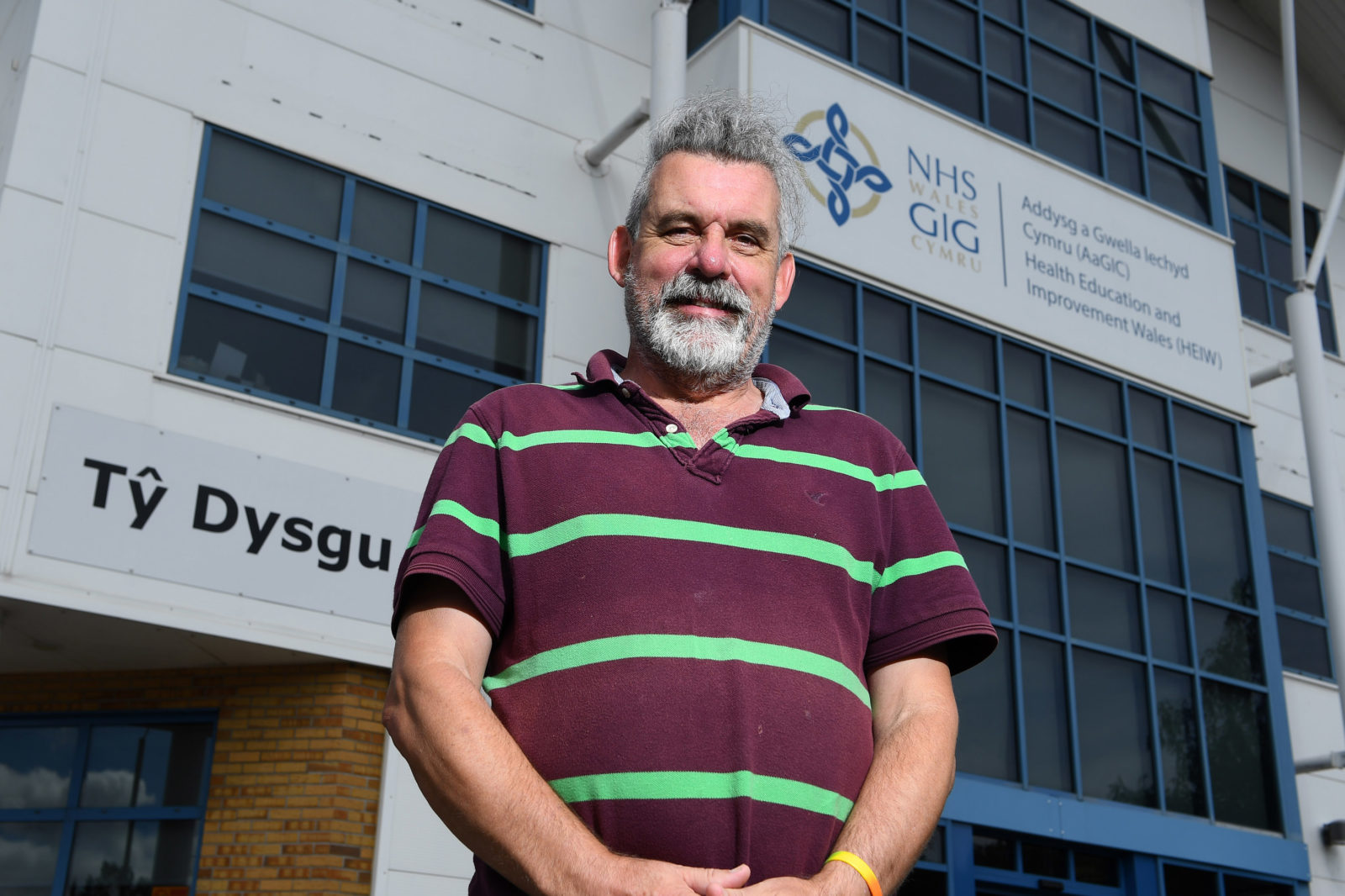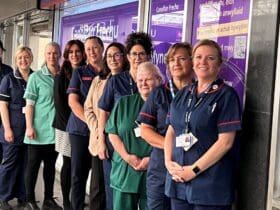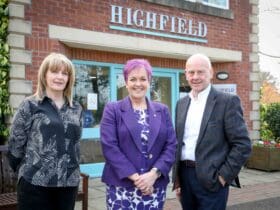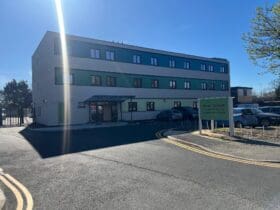An authority that plays a leading role in the education, training, development and shaping of the healthcare workforce in Wales has begun offering bilingual apprenticeships to its employees.
Health Education and Improvement Wales (HEIW) was established in 2018 to sit alongside health boards and trusts as part of NHS Wales and employs 570 staff.
HEIW is tasked with ensuring that the right staff have the right skills to deliver world-class healthcare to the people of Wales.
Huw Owen, HEIW’s Welsh Language Services manager, reports that the number of staff wishing to learn the language is increasing and more young people applying for jobs are asking about opportunities to learn or study through the medium of Welsh or bilingually.
HEIW is currently supporting two apprentices who are learning bilingually – one totally through the medium of Welsh – and there are plans to recruit more this year.
HEIW is being highlighted by Coleg Cymraeg Cenedlaethol and the National Training Federation of Wales (NTfW) as a champion of bilingualism in the workplace.
Coleg Cymraeg Cenedlaethol leads the development of Welsh medium and bilingual education and training in the post-compulsory sector in Wales whilst the NTfW represents work-based learning providers across Wales
“Demand for bilingual services is increasing incrementally and it’s our job to provide opportunities for our staff to learn in the language of their choice,” said Huw.
“Apprenticeships are growing here in HEIW, as more young people don’t necessarily see that university is the best career pathway for them. As a company, we are combining apprenticeships with university courses.
“Apprenticeships are increasingly helping to bridge the gap between school ‘A’ levels, university and people later on in life who want to retrain.”
HEIW recognises that people using health and social care services in Wales should have the opportunity to communicate in the language of their choice, he said.
“For a lot of people, if Welsh is spoken at home, it is much more comfortable for them if they can speak the language in a health and social care setting and it has been proved the world over that it leads to better outcomes,” added Huw.
“HEIW has a board that strongly endorses the Welsh language. Every one of our executives is either fluent in Welsh or is learning the language and that speaks volumes.
“Businesses and organisations are recognising the economic value of bilingualism.”
HEIW’s first employee to enrol on an apprenticeship delivered totally in the Welsh language is Cedron Sion, 26, from Porthmadog, who is a translator with the Welsh Language Services Team.
Cedron, who is an Apprenticeship Ambassador, is working towards a Higher Apprenticeship in Translation Practice (Qualifications and Credit Framework) offered by Agored Cymru and delivered by Gower College Swansea.
Ryan Evans, the NTfW’s bilingual champion, said: “Many workplaces are becoming more bilingual, which can be very beneficial to employers, especially when providing services to Welsh speaking customers.
“Completing an apprenticeship bilingually or in Welsh can increase an individual’s confidence to work in both languages and their employability, whilst also being a great asset to their employer.
“HEIW is an excellent role model for apprenticeships, highlighting the benefits of learning and working bilingually in the workplace.”
Dr Dafydd Trystan, from the Coleg Cymraeg Cenedlaethol, said: “Highlighting successful employers who are active in the apprenticeship sector is a vital tool in showing businesses and individuals that it is both possible and advantageous to support bilingual apprentices.
“With the Welsh Government’s target to reach one million Welsh speakers by 2050, it has never been more important for employers and their employees to develop their bilingual skills to increase their business and employability prospects respectively.”
The Apprenticeship Programme in Wales is funded by the Welsh Government with support from the European Social Fund.









Leave a Reply
View Comments